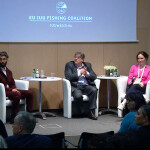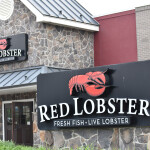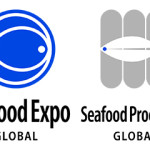Challenges brought by the COVID-19 crisis have “noticeably shifted” the Scottish seafood market, with increased opportunities now arising in domestic and distant markets, according to trade body Seafood Scotland.
Current business behaviors also point to the European market becoming more challenging, with increased red tape around Brexit and trade barriers resulting from various national lockdowns and travel restrictions.
With the United Kingdom halting exports during the coronavirus crisis, many of Scotland’s seafood companies turned to the domestic market, which historically accounts for just 20 percent of trade. Despite the closure of the country’s foodservice channels, many of seafood businesses implemented rapid change programs that built on the domestic consumer side of their businesses. While this shift was not enough to replace all of the income they had lost, Seafood Scotland said that it was sufficient to keep their operations open, alongside government support packages.
Various successful “buy local” campaigns during the pandemic restrictions also helped, Seafood Scotland said. Most recently, it launched its Net Income campaign, which encourages fishing and seafood processing businesses to add retail listings to a number of direct selling directories, providing consumers with information about where they can buy food online, locally, and at the quayside. Working with Scotland Food and Drink "Support Local" hub, Seafish’s "Fish is the Dish," and "Fish on Friday," Seafood Scotland has created one-step application process allowing businesses to list on all three sites.
“For seafood businesses that are not used to selling direct to the consumer locally, or online, the range of opportunities to market to a new audience can be hard to pin down. By using our quick and easy one-stop portal, which is completely free, seafood businesses can share their offering via listings on multiple marketing directories, reaching more consumers and growing sales," Seafood Scotland Trade Marketing Manager Clare Dean said. “Bringing companies together with selling opportunities is what Seafood Scotland is all about – whether that be locally or globally. As consumers are looking to buy local or online right now, we want to ensure that companies are set up to reach them – not just for the short term but also in the post-Covid-19 market, which has the potential to stay strong in Scotland.”
In addition to looking to grow domestic demand, and awaiting the full return of the foodservice sector, the industry now believes there is scope to ramp up its exports to non-E.U. seafood markets, particularly with Brexit looming large as a future headwind for many businesses.
“The market profile has changed considerably. U.K. consumers are demanding more of their own seafood, as opposed to the 60 percent that is normally imported from places like Norway. Buying decisions are being driven by purpose, and ‘buy local’ is top of both consumer and foodservice consciousness, so the demand for more is likely to continue,” Seafood Scotland Head of Trade Marketing for Europe, Middle East, and Asia Natalie Bell said.
Bell said the organization is receiving a greater volume of enquiries from Scottish companies looking to widen their export base. Key non-E.U. markets for Scottish seafood are the Middle East, the United States, and Asia, particularly China, Japan, and Singapore, Bell said.
“Those that traditionally stuck to the key European markets are now extremely interested in sending their produce further afield to places such as Singapore, Indonesia, and Saudi Arabia. Scottish seafood and its quality [are] widely recognized in many markets, and when passenger air routes settle into a consistent pattern, we will see higher volumes of Scottish seafood traveling beyond Europe,” she said. “This could potentially result in a more sophisticated market that places higher value on domestic and long-haul markets – which is a significant turnaround, and it will have myriad impacts on transport, certification, processing practices, product, flavor, and packaging profiles and species selection.”
Bell also pointed out that such trade shifts would help companies to de-risk their operations, spreading their catch over more markets in case of further localized shutdowns.
Meanwhile, fellow industry body Seafood from Scotland, in partnership with Scotland Development International, is this week holding a virtual showcase of Scottish seafood for the U.S. market.
With COVID-19 travel and gathering restrictions preventing the nation’s seafood industry from visiting the U.S. this year, the one-hour webinar, taking place on 23 July, will give potential buyers the opportunity to ask questions about the Scottish seafood sector.
“COVID-19 has had a severe impact across the food and drink sector in Scotland. The seafood sector has been particularly affected given its reliance on export markets to the United States, Europe, and Asia,” Scottish Minister for Trade, Investment, and Innovation Ivan McKee said. “The quality of Scottish seafood is famous the world over, with the best sustainability measures in place, producing consistently high-quality seafood. The United States is a key market for Scottish seafood and our producers look forward to develop the market further.”
During the reception, award-winning chef Mark Heirs will be serving up some Scottish seafood delicacies in a live cookery demonstration from his home, while offering advice and guidance on the seasonality, sustainability, and sourcing of products. Also on hand to talk about their products and answer questions will be representatives from seafood businesses Wester Ross Salmon, Loch Fyne Oysters Ltd., and MacNeil Shellfish.
"The U.S. is, without a doubt, our biggest and most influential market. Wester Ross Salmon are being served across east and west coast even now as our importers are doing their best to deliver only the freshest seafood to their discerning clients,” Wester Ross Managing Director Gilpin Bradley said.
The event will be hosted by Seafood Scotland’s head of trade marketing for North America, Clare MacDougall, who explained that following the cancellation of this year’s Seafood Expo North America (SENA), the industry sought to find a creative way to nurture and expand its relationships with the “vitally important” U.S. market.
“In the midst of a global pandemic and with Brexit also on the horizon, it has never been more important to communicate and collaborate with the transatlantic market and I hope that this session will provide some valuable learnings for our friends across the pond on how to navigate the months and year ahead,” MacDougall said.
Photo courtesy of Seafood Scotland







